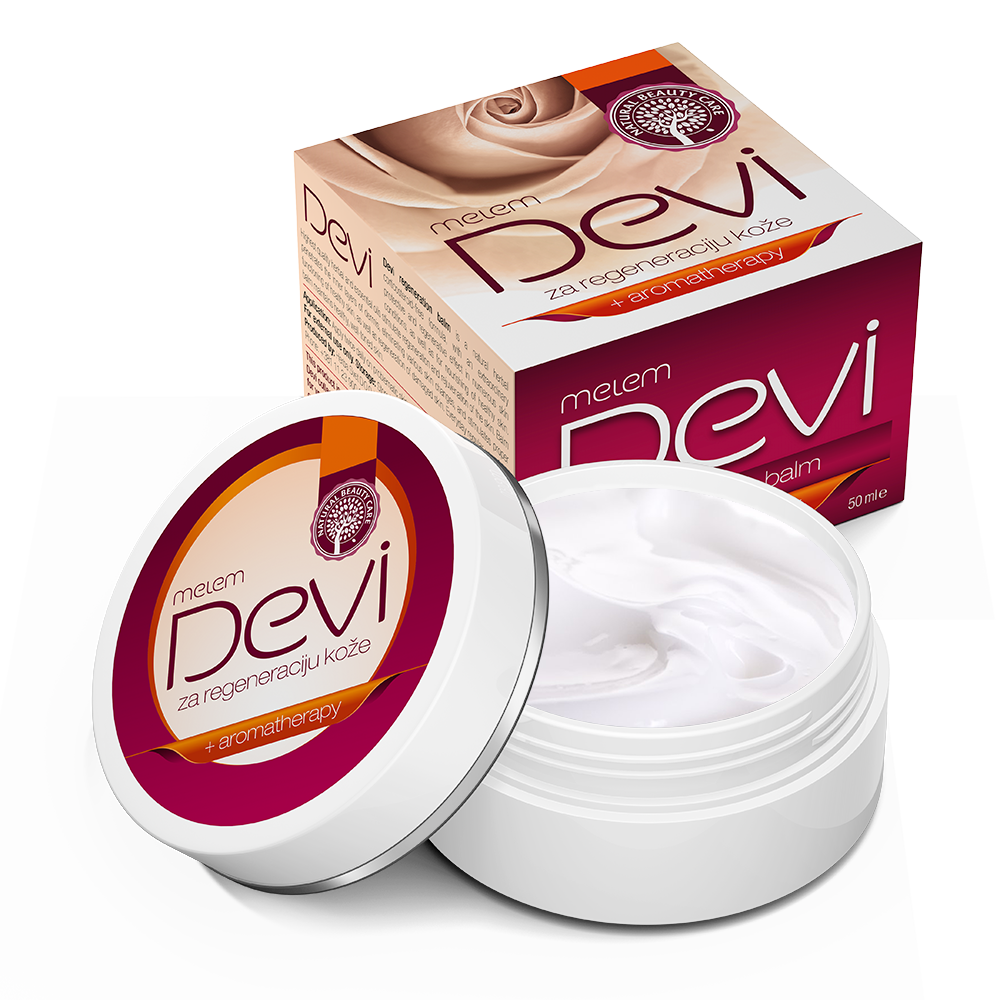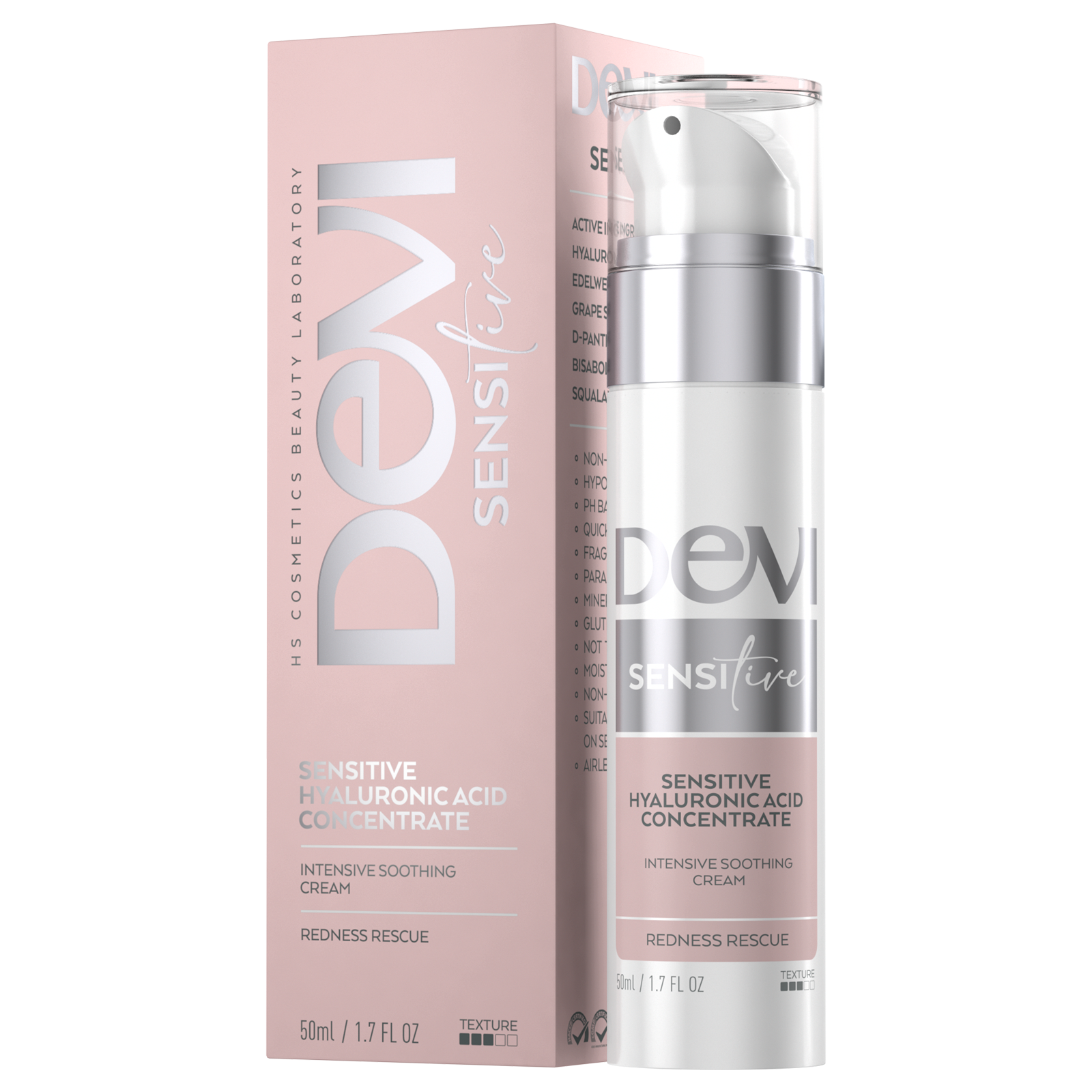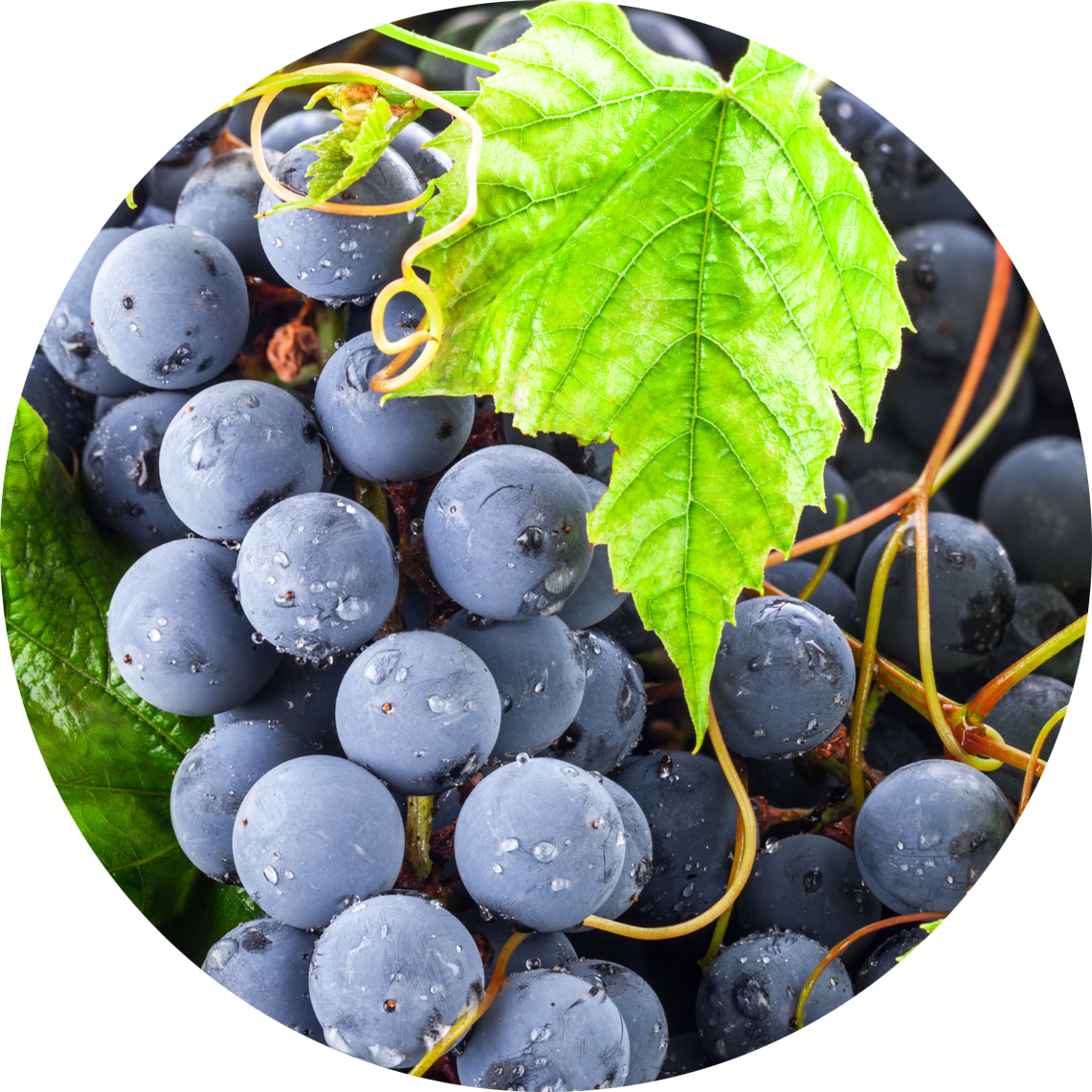(Vitis vinifera)
Once upon a time, when water was not always safe to drink, people knew that by fermentation they could obtain a drink that would keep them sufficiently hydrated, that it would improve their digestion and prevent possible infection at the same time. One of the first fruits to be cultivated was grapes; they were used to make wine which was mostly quite diluted when drunk. Ancient Greeks could not imagine a dinner without wine: apart from improving the quality of the meal, it also improved the enjoyment of the conversation over it. However, it also carried a risk, just as Homer described in the Odyssey, that it would make a wise man sing and dance and say things that would be better kept quiet. According to the Bible, one of the first tasks that Noah had to accomplish after surviving the Deluge was to plant a vine.
Archeology has proven that vine originated as early as 130 million years ago, while the oldest fermented beverage from it dates back to around 7000 BC from China. Wine was made around 6000 BC in the Caucasus; bunches of grapes and jugs of wine were depicted in hieroglyphs in Egyptian tombs dating back to 5000 BC. Among many valuable objects found in Tutankhamun’s tomb was red wine. Ancient Romans spread viticulture (some 90 varieties of grapes) throughout the Mediterranean and Europe with the blessing of Bacchus, the god of wine and agriculture.
Grapes and wine are food but also an important symbol in Christianity: Jesus turned water into wine in Galilee and during the Last Supper, the night before he was crucified, he gave his apostles bread and wine: bread as a symbol of his body and wine as a symbol of his blood. These two foods are still given during communion even today and have the same symbolism.
WINE, GRAPE POMACE AND SEEDS
The common vine, Vitis vinifera, is today one of the most massively cultivated crops in the world, producing about 70 million tons of grapes a year. One third of all vineyards in the world are located in three countries alone: Italy, Spain and France. Other major producers are Turkey, Chile, Argentina, Iran, South Africa and Australia.
In the process of wine-making, an average of seven to eight litres of wine is obtained from 10 kilograms of fruit. What is left is called wine grape pomace and is by no means something that is thrown away. It can be used to distil wine alcohol, to make compost to enrich the soil, is it used as cattle fodder, food colouring is made from the skin of the fruit and it can also be used to make wine vinegar; the most valuable component in grape pomace are the seeds from which oil is obtained by cold pressing.
GRAPE SEED OIL AND HEALTH
If consumed in moderation, wine is a “healthy food”; it can help reduce the risk of heart disease and blood clots, lower blood pressure, LDL and HDL cholesterol, and even help with haemorrhoids and diabetes. Oil obtained from raw grape seeds by cold pressing is also a valuable source of antioxidants and vitamins. It is used in cooking and it contains many nutrients; it is much more useful when applied externally, to the skin and hair. Grape seed oil is very rich in antioxidants – polyphenols and flavonoids that neutralise the action of free radicals, which are the biggest culprits for skin ageing. Among them, proanthocyanidins, bioflavonoids with strong antioxidant, anti-inflammatory, immunosuppressive, antiangiogenic and antiproliferative effects stand out. Proanthocyanidins have been shown to be useful in the treatment of cardiovascular disease, diabetes, autoimmune arthritis and even cancer; some recent research proves their effectiveness in psoriasis. That makes a lot of sense, because psoriasis is an inflammatory disease and a disorder of the immune system; this is where the anti-inflammatory and immunosuppressive effect of these bioflavonoids finds its true expression. There are numerous studies that have proven the anti-inflammatory effect of grapes, especially in the case of psoriasis. Leaf extract and grape seed oil reduce lesions and promote tissue regeneration in this skin disease, and anti-inflammatory agents soothe the skin and prevent re-inflammation. Grapes go further than that, with their antioxidant action they effectively destroy cancer cells naturally and without side effects.
Vitamins (vitamin E in particular), essential fatty acids and omega-6 fatty acid rejuvenate the skin, stimulate the production of collagen and prevent wrinkles. Although it is greasy like any other oil, it can also be applied to oily skin because it balances the secretion of sebum and prevents the appearance of acne; it does not close the pores and allows the skin to breathe easily.
GOOD FOR VEINS AS WELL
In addition to being absorbed very quickly and giving the skin moisture and firmness, grape seed oil also has the ability to strengthen capillaries and varicose veins and soothe skin prone to redness, inflammation and allergies. Thanks to linoleic acid, it soothes more serious skin disorders, such as dermatitis and eczema, alleviates burns, helps heal wounds and protects the skin from harmful UV radiation and the resultant ageing. The biggest role in skin photoprotection is played by phenols with their antioxidant effect, so grape seeds are increasingly part of modern natural cosmetics. It is also great for the hair: it prevents hair loss and encourages root regeneration, restores its shine and softness. Grape seeds have been proven to stimulate follicle function and hair growth thanks to the bioflavonoids epicatechin and catechin, as well as the already mentioned proanthocyanidins.
In addition to being suitable for facial skin and décolleté, unrefined grape seed oil is ideal for foot care: not only will it soften the skin and prevent it from cracking, but it will also help neutralise tiny capillaries that often appear between the heel and the ankle.
It is ideal in combination with other oils and butters, such as avocado, jojoba and Chilean rose oils and cocoa and shea butter, which enhance the care effect, prevent cracking, soften the skin and rejuvenate it, with essential oils of lavender, rosemary, bergamot and mandarin which have strong antimicrobial action, as well as medicinal extracts of broadleaf plantain, yarrow and witch hazel. All these precious ingredients are part of Devi skin regeneration balm. This high-quality balm is completely natural, without preservatives, artificial colours and fragrances, it is suitable for daily care of healthy skin, but also of sensitive, oily and mature skin; it is equally good for skin affected by psoriasis, dermatitis, eczema, after sunbathing and for healing burns and wounds. Devi balm regenerates the skin, prevents pigmentation and age spots and improves elasticity and youthful appearance. There are also the Anti-Ox Serum which boosts skin immunity and Sensitive Cream which helps sensitive skin fight rosacea. All this with the blessing of Bacchus!



